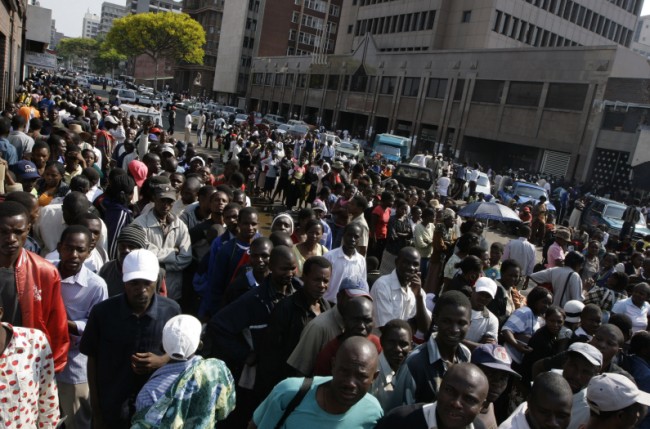
Mangudya said there were huge amounts of cash circulating outside the financial system, starving the formal banking system.
The central bank head, however, said he hopes that a financial inclusion strategy unveiled at the end of March would help ease the cash crisis as it revolves around technology-based banking systems.
“As Reserve Bank, we have injected $145 million from January 1 to April 6, that’s what we have put into the market and we don’t think the money is circulating. Banks have imported $118 million during the same period, but that money is not there in the banks,” Mangudya told a parliamentary committee on finance.
Mangudya spoke as a liquidity crunch returned to haunt the financial system last week, the second time in two months that banks have battled to satisfy demand for cash in Zimbabwe.
The southern African country dollarised its economy in 2009, after its own currency was wiped out by hyperinflation, which touched a record 500 billion percent in December 2008, according to the World Bank.
Mangudya said some banks had put caps on withdrawals while others have switched off their automated teller machines (ATMs).
“There is rationing of exchange or cash. There is excessive demand for cash. The banks are trying to ration and spread the money. The demand for cash is high right now,” said Mangudya.
He told Parliamentarians that only six banks – Barclays Bank Zimbabwe, Standard Chartered Bank Zimbabwe, CBZ Bank, MBCA Bank, Stanbic Bank and FBC Bank – were importing cash. The country has 16 banks.
Last year, 10 of the country’s banks were importing the United States dollars.
Only two of these banks are locally owned financial institutions.
The central bank chief has also said significant cash payouts to small-scale gold miners and tobacco farmers, whose selling season opened a fortnight ago, had also exerted pressure on the banking system.
“We are using $6 million a week to buy gold, yet we had budgeted $5 million. We are working with African Export-Import Bank for a stabilisation fund for our Nostro accounts. This is a national challenge, not a bank’s challenge. The appetite for holding cash in this country is very high. If we use plastic money, we would reduce pressure on banks,” Mangudya added.
Zimbabwe’s overreliance on imports, is partly responsible for the shortage of cash in circulation as the country was not producing enough to earn from exports while the little available money was being sucked out through imports.
Zimbabwe’s trade deficit is estimated to be around $3 billion.
“Some shortages are a result of foreign currency slippages in the country to other countries. Every country that needs foreign currency is turning to Zimbabwe because it’s readily available,” Mangudya said.-The Source
See also:
MDC-T warns of a return to the Gono days of cash shortages
Chinese were smuggling cash through embassy diplomatic pouch
Banks notch combined $128 million profit
(129 VIEWS)